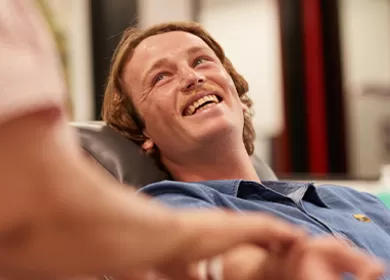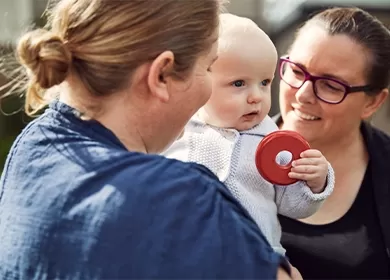The mums behind milk donation
Over the first six years of operation, 1,794 mums donated 23,714 litres of human milk for Lifeblood to distribute to premature babies in hospitals across the country. But who are the people making these life-giving donations? Our milk research team have dug into the records to learn more about these generous women.
Who is donating milk?
Milk donor age varied widely, from as young as 18 up to 51 years old. The average donor is aged 32.4 years. Most of the donors have infants who were born at term (68.3%), but there were 28.7% with preterm (<37 weeks’ gestation) infants. This is much higher than the general preterm birth rate in Australia of 8.6%, suggesting that parents of preterm babies may be more likely to know about milk donation.
There are 45 donors who deserve a special mention, honouring their love by donating milk after losing their baby. Thank you for helping other families in such a difficult time.
How much and when is milk donated?
Most milk donors (56%) make a single donation, though our most prolific donor has given 18 collections. The typical total volume donated is 7.4 litres, with the largest donation from a single donor an incredible 229 litres (not all at once!). Whether it’s one or several, every donation makes a difference for premature babies across Australia.
Interestingly, donors who’ve had a preterm baby give more milk on average than donors with term babies (16 vs 12 litres). This might be because they’re more likely to pump or express milk for their little one and have an excess stored, just like Janske’s story of becoming a milk donor.
Almost all donors start giving within their baby’s first six months of life, with most donations starting around the two month mark. Donors most often continued to give until their infant reached an average of 4.6 months, and tended to give between 4.3 and 5.7 litres each time they donated.
What’s next for milk research?
You can dig into all things milk research on our website. Lifeblood’s Milk Research Lead, Dr Laura Klein, is particularly excited about a recently completed project:
“We’ve just completed a survey with milk donors to learn more about their experiences. It’s really helping us put donors’ stories behind the numbers from this study and I'm pleased we've now shared those stories online.”
I’d like to become a milk donor
That’s great to hear! You’ll be supporting premature babies when their mum’s own milk is not available, helping them grow and reducing the risk of necrotising enterocolitis.


